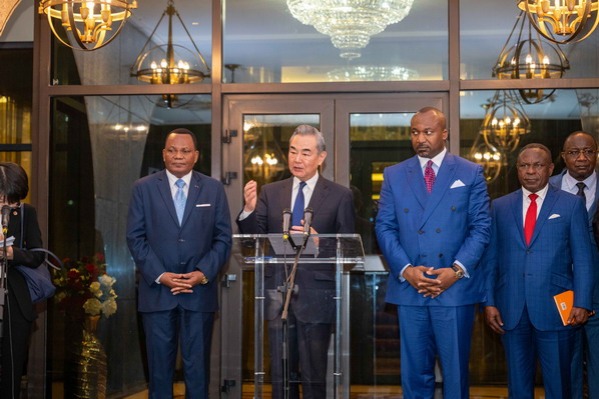UK defends end of free tests


Critics claim sudden end of initiative is premature and kits will become 'luxury'
The United Kingdom has said its decision to end free COVID-19 mass-testing in England was based on economics, with the cost of the huge number of kits used daily ultimately too much to sustain.
Since the fall of 2020, the government had made free tests available to anyone wanting to check their COVID-19 status, and continued to supply them until Friday, when Downing Street said the end of restrictions on people with COVID-19 made them largely redundant.
A spokesman for Prime Minister Boris Johnson told reporters the program was "simply unsustainable", with its 2-billion-pound ($2.6-billion) monthly bill picked up by taxpayers in the nation of 68 million.
Ironically, the end of free mass-testing came on the day the National Health Service added nine more symptoms-including shortness of breath and a runny or blocked nose-to the list of indicators of a possible COVID-19 infection, a move that would have led more people than ever to reach for a free test.
The prime minister's spokesman said people with symptoms who fear they may have COVID-19 can still limit their interactions even though they are no longer required by law to do so.
"I think anyone, even pre-COVID, would recognize, if they have symptoms of an infectious disease, something like flu, they should stay home and not infect their loved ones or colleagues," he said, adding vaccines, therapeutics, and "other approaches" mean far fewer people now require hospital treatment after becoming infected.
The end of free testing comes amid a surge in new infections that followed the end of all legal restrictions on interaction. The Office for National Statistics estimated 4.9 million people had COVID-19 in the UK as of March 26, the most since the pandemic began.
Critics said restrictions on movement and the end of free testing came too soon.
Professor Devi Sridhar, chair of global public health at the University of Edinburgh, told the Evening Standard newspaper the government had made "a major mistake", with kits set to become "a luxury good".
"It's going to have a disproportionate impact on those who just can't afford to have it but also who are most at risk," she said.
Professor Stephen Reicher, a member of a committee that advises the government on behavioral science, told the Evening Standard the money saved by ending free testing will end up costing it "tens of billions of pounds" more in the long-run.
However, John Edmunds, a professor of infectious disease modelling at the London School of Hygiene and Tropical Medicine, told the Financial Times the expanded list of symptoms was aimed at keeping "a lid on the epidemic without testing" by ensuring people continue to take respiratory infections seriously.
Free testing will continue to be available to a small group of people, including hospital patients, people being discharged into care homes and hospices, and vulnerable people eligible for antiviral treatments.

































